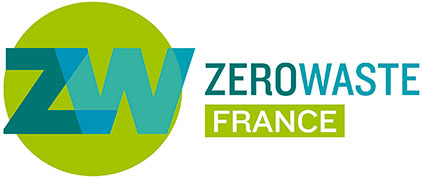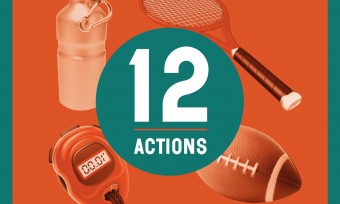Extending the lifespan of products
Greenhouse gases emissions, resource consumption, waste production... our consumer goods are not neutral for the environment. Extending their lifespan is a crucial element of the zero waste process !
Making a pair of jeans requires 32 kg of raw material and 8000 liters of water and the manufacturing stage of and iPad amounts to 77 years of use in terms of energy consumption ! In addition, certain components of this waste, especially the metals used in smartphones, are difficult to recycle and are thus harmful for the environment when they are incinerated or buried in landfill sites. Plenty of reasons, therefore, to increase the lifespan of objects once they are produced.

The lifespan of objects is decided as soon as they are designed
Eco-designing means designing a product in order to minimize its impact on the environment and particularly its raw materials and energy consumption throughout its life course (production, distribution, use, collection and waste processing). It can mean using recycled raw materials, robust and sustainable materials or designing objects that are easily repairable (by facilitating the disassembly and the access to components for instance) or more adaptable to technological developments.
Fighting obsolescence
However, certain factories’ strategies go against eco-designing since they practice planned obsolescence by willingly limiting the lifespan or use of their products. In the same logic, numerous marketing strategies encourage the rapid renewal of purchases, which are often decorrelated from the real needs of the consumer, thus speeding up the overproduction and overconsumption of our resources.
This quick renewal of purchases brings about an increase of waste. For example, textiles represent 345 millions of tons of waste a year in France.
Zero Waste France fights these policies by encouraging the creation of bonus-penalty systems on consumer goods according to their robustness or their repairability for instance.
Promoting other consumption patterns
From an individual point of view, increasing the lifespan of products can mean adopting new purchasing reflexes, for instance avoiding buying new products. Websites and physical locations everywhere in France allow you to find second-hand or repackaged products or trade, share, rent or borrow them ; they also offer tutorials to produce or fix them yourself. These consumption choices can also have a positive social impact because they often create activity and jobs. For instance, the repair sector employs more than 150 000 people in France.
In 2018, Zero Waste France launched a big challenge to put the spotlight on these alternative consumption patterns : the « buy nothing new » challenge.
Discover alternatives thanks to the “Buy nothing new” challenge
Throughout 2019, more than 18 000 participants took up Zero Waste France’s challenge : buy as few new products as possible.
The Challenge website and its lists of alternativesLengthening the use
Lengthening the use of a product also means protecting it (putting your computer in a case when carrying it around, etc…) and giving it a second life when you don’t use it anymore : lend it, rent it, sell it or give it to someone or to recycling structures such as charities or recycling facilities. If the product is out of order, broken or damaged, you can also try fixing it yourself or with a little help from a professional.
Eco-citizen repair guide
The Amis de la Terre (Friends of the Earth) eco-citizen repair guide “Stop au coup de la panne” provides the general public with solutions to get their bearings in the repair sector.
Guide réparation

